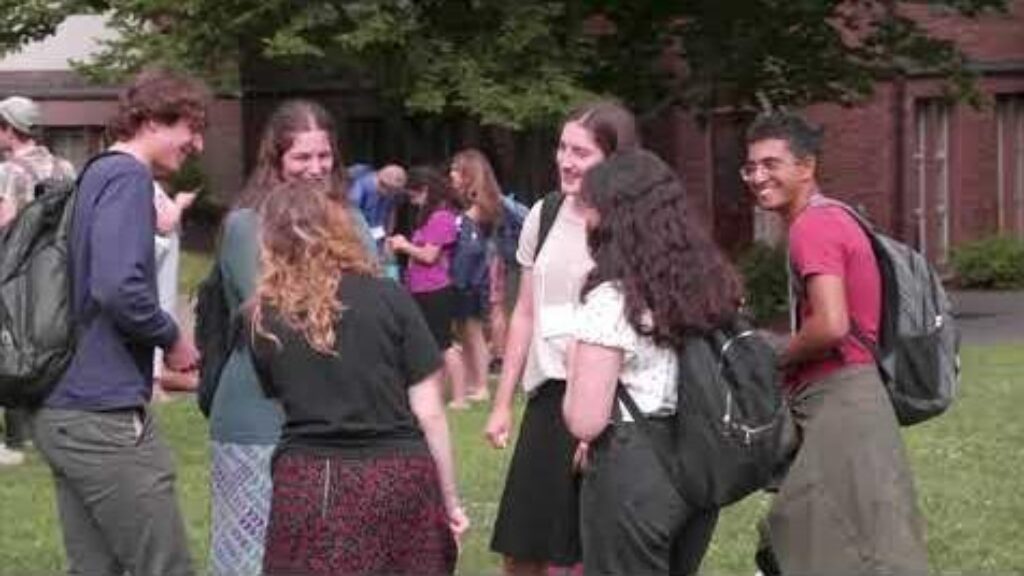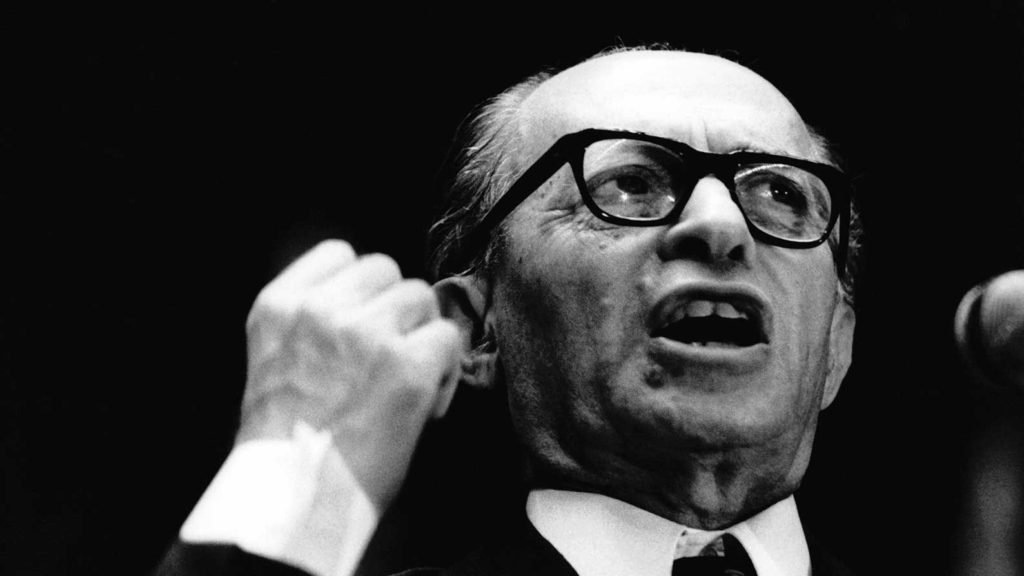Right Before His Eyes
BY ARI UNGER
Jacob wore a tightly buttoned plaid shirt. He had a thin, carefully trimmed mustache, and nicely pressed slacks. He sat on the couch, which was carefully covered in thick plastic. The couch was in a small living room, with family pictures and small bookshelves lining the walls. There was a fireplace full of chopped wood. As a kid, Jacob would always buy unchopped wood, and chop it himself. He hadn’t done that in a long time. Above the fireplace was a cross. An old lady, Jacob’s mother, soon shuffled her way into the room. She had a cane in her arthritic, swollen hand, and her back was hunched over. Clutched in one of her hands was a Bible. She had the habit of rubbing her palm along the cover of it, almost as if she was making sure it was always there. His mother slowly made her way over to her cupboard on the wall next to the fireplace. It was made of plain, varnished, cherry wood. On top of the cupboard two candles were placed in sterling silver candle holders, which had been in their family for generations. His mother lit the candles with a matchbook produced from her apron. Jacob didn’t understand why their family had always done this. He had distant memories of his grandmother doing the same thing. He never thought much of it. But then again, the last time he had seen his mother do this was when he was merely a teenager, heading off to university. Now that he had graduated from such a top university, with a degree in history no less, Jacob considered himself educated. He was no longer some random boy. He was distinguished.
“Momma, why do you always light the candles like that?”
His mother slowly turned around: “Because my mother did, so I do.”
The matchbook she had been holding in her hand disappeared into her apron, and she slowly walked out of the room, touching the doorway, and then, afterwards, bringing her hand to her lips. Jacob supposed that it was odd that she did that, but by now he just figured it was a nervous habit.
Jacob sunk further into the couch. He was on a short visit home before heading to Italy. His mother had always promised him that if he got a degree, she would help fund a vacation for him. Finally, Jacob decided it was time to take her up on the offer. He decided that he would use his vacation to find out more about his family. His family had immigrated from Italy a generation ago, and he grew up hearing stories about huge, beautiful churches, where the ceilings were so tall you could barely see them. Momma had even told him which parish to visit to find his family records. Jacob was fully packed, even though his flight didn’t leave for two days, so he stayed with his mother, waiting for the time to come for him to board the plane.
When Jacob landed in Italy, the first thing he did was go to Mass. It was a Sunday morning, and he took a car to the church. Jacob went to Mass every morning, but this time, it felt different. As he sat in the hard wooden pews, staring at the ceiling of the Renaissance era church in Naples, he couldn’t help but wonder if his grandfather had sat there before him.
After Mass, the next stop for Jacob was a small parish that served a village outside of Naples. Jacob’s mother had told him they would have his family records. The parish was a small, stone church in the shape of a house. The insides were dusty, with small wooden pews, and an old, stooped over man stood waiting for him. Jacob had called ahead, and with his mother translating for him, managed to get someone from the town on the phone to prepare his file. He didn’t want to have to spend hours searching in an old, dusty room he had never been in. Especially one full of papers in a different language. The old man held out his wrinkled, spotted hand, and gave Jacob the file.
“Be careful—you may not want to see,” the old man boomed in broken English. His gruff voice filled the church. It didn’t seem possible that this voice could come from such a tiny, frail man.
The folder contained birth certificates, death certificates, and contracts for burial plots. Jacob couldn’t understand a word of it, because it was all in Italian. But on the paper there was a post-it note with an address, and “graveyard” written in slanted, messy English beside it.
After struggling to find the address, and asking many locals for directions in his broken Italian, Jacob eventually arrived. He entered through an open, rusty gate, adorned with a cherub and a cross. It was once painted black, but the paint was now peeling. He walked past graves looking for his mother or father’s last name. After searching, he finally found his mother’s name. A feeling of excitement started to rise inside him. There were newer graves in the front, and as he started walking towards the back, the graves got older, and more broken. Eventually, he found the oldest one.
From what he could barely make out, in tiny letters next to the name was an Italian word—“ebrea”—with a little star beneath it. Quickly hurrying to the grave next to it, he saw all the last names had been changed. Jacob didn’t understand what he saw before him. Mind raising, he started to twirl his mustache. Jacob just couldn’t comprehend what was happening right before his eyes.
With heavy steps, Jacob turned back to the grave, and read it again. His hand stopped twirling his mustache, and his eyes didn’t blink. They didn’t move. They just simply stared. Slowly, the flowers and tiny wooden crosses he was going to put on his ancestors’ graves fell from his hands.
Suggested Reading

A New Viewpoint on Diversity
Often, it seems that the people who talk about diversity never visit diverse communities. People seem to think that diversity is based on how one looks. True diversity is not about how someone looks, but how they act.

My Real Internal Conflict is Not One of Clashing Interests
When do my Jewish interests and American interests conflict? After much careful internal deliberation, I have concluded that they do not.

Regaining our Power Through Knowledge: The Solution to Rising Anti-Semitism on Campus
An emotional connection to our Judaism cannot be our only solace. Knowledge is the solution to the problem Jewish students face today.

Begin’s Jewish Pride
On May 12th, 1977, in the immediate aftermath of his improbable Israeli election victory, Prime Minister-elect Menachem Begin broke down Israel’s long-upheld “secular wall,” as he donned a kippah and…